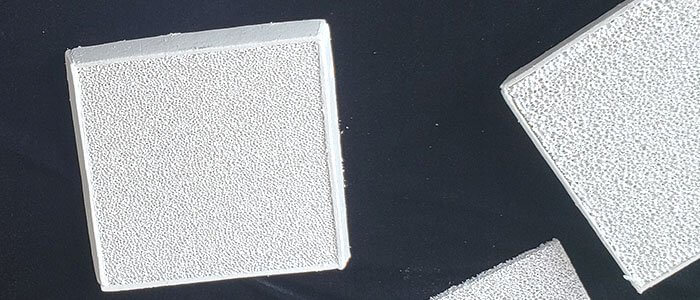Introduction:
The foundry industry plays a crucial role in shaping various sectors by producing essential components and products like alumina ceramic foam filters. Among the various types of foundries, aluminium foundries stand out due to their significance in catering to industries like automotive, aerospace, and construction. An integral aspect of aluminium foundries is the utilization of advanced ceramic foundry filters that ensure the production of high-quality aluminium castings.
Alumina Ceramic Foam Filter Research project on improving the efficiency of the aluminium casting process
In a small town in Argentina, Dr Maria Fernandez embarked on a research project aimed at improving the efficiency of aluminium casting processes. Dr Fernandez’s work demanded the use of high-performance filters that could effectively remove impurities from molten aluminium, thereby enhancing the quality of castings. With numerous filter materials available, including sic ceramic foam filter, alumina ceramic foam filter, and zirconia ceramic foam filter Dr Fernandez faced a challenging decision.

Dr Fernandez’s research required meticulous attention to detail, leaving no room for compromise in her choice of porous ceramic filter. Silicon carbide filters were known for their excellent thermal conductivity and chemical stability, but concerns over brittleness and potential reactivity with aluminium surfaced. Alumina ceramic filter was considered for its mechanical strength and wear resistance, yet its limited thermal shock resistance posed potential issues. Magnesium oxide showcased high thermal shock resistance but was often criticized for reduced chemical stability in demanding aluminium processing conditions.
Amidst this array of choices, the zirconia ceramic foam filter emerged as an unexpectedly promising candidate. Zirconia ceramic foam filters were gaining traction due to their remarkable combination of properties, including excellent thermal shock resistance, chemical stability, and mechanical strength. These qualities made zirconia filters suitable for maintaining structural integrity even in the extreme conditions of aluminium casting processes.
Dr Fernandez conducted a thorough comparative analysis of the ceramic porous filter by considering critical factors like thermal conductivity, chemical reactivity, mechanical properties, and overall cost-effectiveness. While each material possessed its unique strengths, the zirconia ceramic foam filter stood out for its exceptional balance of attributes crucial for aluminium foundry applications.
Ultimately, Dr Fernandez’s decision to opt for zirconia ceramic foam filters proved to be a turning point in her research. The choice not only facilitated successful experimentation but also yielded improved casting results with reduced defects. This case highlights the significance of meticulous material selection in industrial research and its impact on achieving desired outcomes.
Conclusion:
The Argentine client’s journey in the realm of aluminium foundries underlines the importance of informed decision-making when it comes to choosing appropriate filter materials. In the dynamic landscape of materials science, zirconia emerged as the optimal solution, demonstrating its potential to revolutionize aluminium casting processes. As the foundry industry continues to evolve, such case studies about zirconia ceramic foam filters contribute to the collective knowledge base, driving advancements in materials and techniques for enhanced production efficiency and quality.


